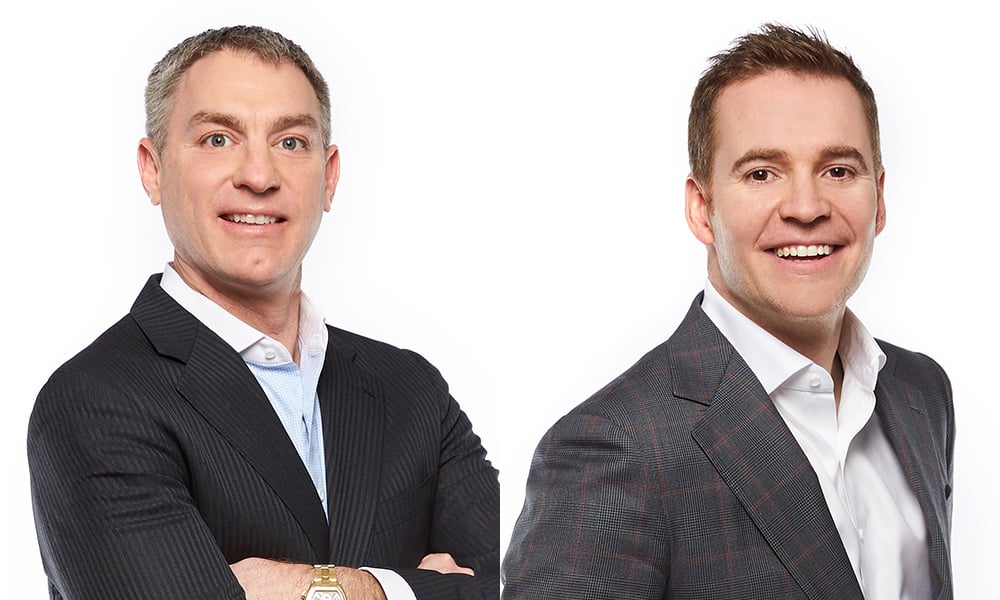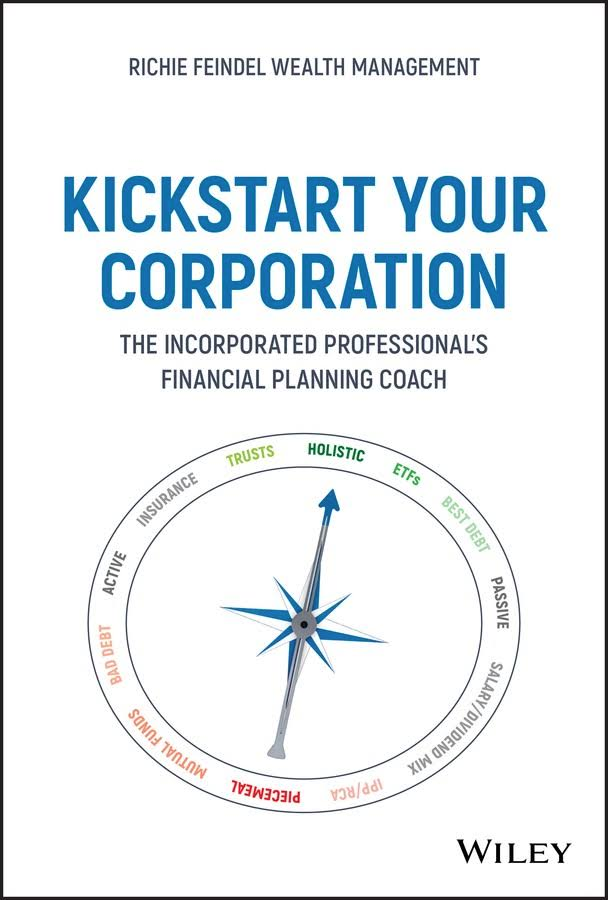Behind one independent wealth team's 20-year focus on medical professionals, and how they're giving back with a new book

It would be no exaggeration to say that 2020 has been an eventful year for the wealth management industry in general. But even if the pandemic and its earth-shaking consequences had not come to pass, Kyle Richie and Andrew Feindel would still have at least two reasons to consider it as one to remember.
For one thing, it would mark their first full calendar year at Richardson GMP. They officially made the leap from another financial services firm in December last year, a move that came only after careful consideration and extensive due diligence.
“We are proud of our decision to join Richardson GMP, an independent leading-edge wealth management firm,” Richie said. “Only those advisors who demonstrate the highest standards and a commitment to delivering unbiased – and unparalleled – wealth management solutions are invited to join the firm and we are fortunate to be among them.”
Joined by other members of their team, Richie said they are confident that they’ve chosen well. He pointed to Richardson GMP’s independence and size as a differentiating factor, which allows practices under its umbrella to concentrate all their time and energy on helping clients create, protect, and pass on their wealth. Over the past year, he and Feindel have been able to deliver more investment options for clients and present lower fee structures.
A practice specializing in specialists
Their practice caters to physicians and dentists, a specialized book of business that’s grown over 20 years as Richie cultivated his in-depth understanding of the unique financial challenges confronting medical professionals. It’s a niche that’s naturally close to his heart given his extensive family ties to the industry: his father is an orthopaedic surgeon; his uncle is a dentist; and his wife, mother, mother-in-law, and sister are all nurses.
When Feindel joined Richie’s practice fifteen years ago, it was a natural fit: like Richie, he had a deep understanding of the medical field because of close familial connections. That included his father, a Toronto-based cardiac surgeon; his grandfather, who was a neurosurgeon inducted into the Canadian Medical Hall of Fame; and his wife, who is a nurse.
“We both saw that a lot of financial planning was executed as piecemeal, with financial planning solutions evaluated in isolation,” Feindel said. “The left hand didn’t know what the right hand was doing: the accountant would decide on when to incorporate and what compensation should be paid, which included the salary-dividend mix; the insurance broker would decide on the insurance; the lawyer would decide on the estate plans; and the broker would decide on the investment plans.”
Just as a human being lives through the harmonious functioning of their body’s organ systems, he said the health of a professional’s wealth plan is determined by how pieces of the financial puzzle relate and interact. That means optimally, one person should be able to drive the discussion around a medical professional’s wealth plan as one decision or element can have an influence on others.
“For instance, incorporating earlier could allow you to purchase your home quicker,” Feindel said. “Your salary-dividend mix relates to your risk tolerance and investment income characteristics. Your investment allocation connects with your charitable donations. Your insurance needs connect to your retirement plans and investment allocation. The examples go on and on.”
Helping professionals take control
Which leads to the second reason why 2020 is special for them. Feindel has authored a new book titled Kickstart Your Corporation: The Incorporated Professional's Financial Planning Coach, which is set to come out tomorrow. While there’s no shortage of books that offer copious amounts of information and detail on financial topics, Feindel said theirs promises “concise, targeted, and pragmatic guidance with a boots-on-the-ground perspective from a team that’s “been there, done that.”

“In our practice, I see a lot of misconceptions and even mistakes that need course-correcting,” he said. “These blunders happen because people don’t have a reliable and accessible source of the guidance they need, and I would argue deserve, for organizing and managing their financial lives as incorporated professionals.”
Feindel hopes to help change that with the new book. Aside from addressing whether and when one should decide to incorporate, it offers advice on topics such as where an incorporated professional should place insurance within their specific financial plan; using trusts and charitable donations as wealth-planning tools; and how and where to invest to keep the taxman at bay.
“A good financial planner should acknowledge they have absolutely no control of the markets,” Feindel said. “However, taxes are completely controllable, and having a corporation is a powerful tool that allows professionals to control their tax bill.”
Other topics the book touches on include the use of prudent leverage, weighing the pros and cons of active and passive management, and the use of alternative strategies like a capital gains strip. With a mix of personal observations, real-life examples, and strategy evaluations (compliments of a national tax, business and consulting firm), it aims to guide the professional on their incorporation journey.
“Together with my business partner, we’ve built a very successful financial-planning practice serving the needs of incorporated professionals, and now it’s my time to give back,” Feindel said.



